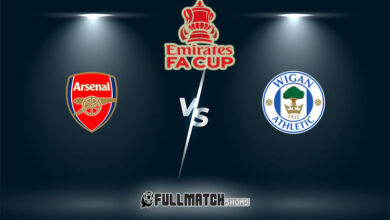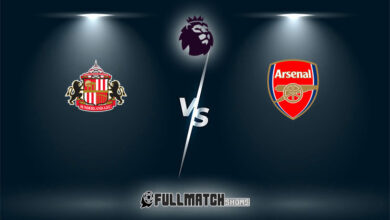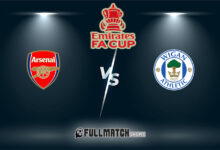The 2003-04 Arsenal team, known as “The Invincibles,” remains one of the most iconic teams in Premier League history. Under the guidance of Arsène Wenger, Arsenal completed the entire season unbeaten, winning 26 matches and drawing 12 to lift the Premier League trophy. This remarkable achievement was unprecedented in the modern era, and no team has been able to replicate it since.
The Invincibles were a perfect blend of tactical brilliance, individual talent, and mental resilience. Players like Thierry Henry, who won the Golden Boot that season, was at the peak of his powers, scoring 30 goals. Patrick Vieira, the club’s captain, led the midfield with authority and skill, while defenders like Sol Campbell and Kolo Touré formed a rock-solid partnership at the back. Goalkeeper Jens Lehmann provided reliability and composure between the posts.
What made the Invincibles special was not just their unbeaten run but the fluid and attacking football they played. Wenger’s philosophy of passing, movement, and attacking flair was fully realized in this team. The balance between technical brilliance and physical strength allowed Arsenal to dominate games while being tough to beat. The Invincibles’ legacy is enshrined in the annals of football history, and many consider them the greatest team the Premier League has ever seen.
Thierry Henry: Arsenal’s King and Premier League Icon
Thierry Henry is arguably the greatest player to ever wear the Arsenal shirt. Signed from Juventus in 1999, Henry quickly established himself as one of the most exciting talents in the Premier League. Known for his blistering pace, sublime technique, and lethal finishing, Henry transformed Arsenal’s attack and became the face of the club’s golden era under Arsène Wenger.
Henry’s ability to score all kinds of goals—whether solo efforts, free-kicks, or clinical finishes—made him a constant threat to opposition defenses. He won the Premier League Golden Boot a record four times and scored 175 Premier League goals for Arsenal, making him the club’s all-time leading scorer. One of Henry’s most iconic moments came in 2004 when he scored four goals in a 5-0 demolition of Leeds United, showcasing his incredible skill and composure.
Henry was more than just a goal-scorer, though; he was a leader and a talisman for Arsenal. His influence extended beyond the pitch, as his professionalism and passion inspired teammates and fans alike. After leaving Arsenal for Barcelona in 2007, Henry returned for a brief loan spell in 2012, scoring an emotional winning goal against Leeds United in the FA Cup. His legacy as an Arsenal legend is unmatched, and he is often regarded as one of the best strikers the Premier League has ever seen.
Highbury: The Legendary Home of Arsenal
Before moving to the Emirates Stadium in 2006, Arsenal called Highbury their home for 93 years. Highbury was more than just a stadium; it was a symbol of Arsenal’s history, tradition, and identity. Located in North London, Highbury had a unique charm and atmosphere that made it one of the most iconic grounds in English football.
Highbury witnessed many of Arsenal’s greatest moments, from the triumphs of the 1930s under Herbert Chapman to the dominance of the Arsène Wenger era. The stadium’s intimate design, with stands close to the pitch, created an electric atmosphere that made Highbury a fortress for Arsenal. Legendary players like Tony Adams, Dennis Bergkamp, and Ian Wright graced the Highbury pitch, delivering memorable performances in front of passionate supporters.
The “Highbury Farewell” season in 2005-06 marked the end of an era for the club. Arsenal played their final game at Highbury in May 2006, a 4-2 victory over Wigan Athletic, with Thierry Henry scoring a hat-trick. Despite the move to the Emirates, Highbury remains an integral part of Arsenal’s heritage, and its legacy continues to live on in the hearts of Arsenal fans.
Arsène Wenger’s Philosophy: How He Revolutionized Arsenal
Arsène Wenger’s 22-year reign as Arsenal manager was marked by innovation, success, and a commitment to beautiful football. When Wenger arrived at Arsenal in 1996, English football was still largely defined by its physicality and direct play. Wenger, however, brought a new philosophy that emphasized technical skill, attacking flair, and meticulous preparation.
One of Wenger’s greatest contributions to Arsenal was his focus on player development and scouting. He brought in talented players from around the world, such as Thierry Henry, Patrick Vieira, and Robert Pirès, who fit into his vision of a fast, fluid, and attacking style of football. Wenger’s ability to spot talent and develop young players was crucial to Arsenal’s success in the late 1990s and early 2000s.
Off the pitch, Wenger revolutionized player diets, fitness, and recovery. He introduced modern training methods, strict dietary plans, and a scientific approach to player conditioning. These innovations helped extend the careers of key players and gave Arsenal a competitive edge.
Wenger’s commitment to playing the game “the right way” led to some of the most entertaining football in the Premier League. His teams were known for their technical brilliance, quick passing, and movement, which earned them admiration from football purists around the world. Despite his final years being marked by frustration and a lack of trophies, Wenger’s impact on Arsenal and English football is undeniable. He left a lasting legacy as one of the greatest and most influential managers in the sport.
The 2003-04 Arsenal team, known as “The Invincibles,” remains one of the most iconic teams in Premier League history. Under the guidance of Arsène Wenger, Arsenal completed the entire season unbeaten, winning 26 matches and drawing 12 to lift the Premier League trophy. This remarkable achievement was unprecedented in the modern era, and no team has been able to replicate it since.
The Invincibles were a perfect blend of tactical brilliance, individual talent, and mental resilience. Players like Thierry Henry, who won the Golden Boot that season, was at the peak of his powers, scoring 30 goals. Patrick Vieira, the club’s captain, led the midfield with authority and skill, while defenders like Sol Campbell and Kolo Touré formed a rock-solid partnership at the back. Goalkeeper Jens Lehmann provided reliability and composure between the posts.
What made the Invincibles special was not just their unbeaten run but the fluid and attacking football they played. Wenger’s philosophy of passing, movement, and attacking flair was fully realized in this team. The balance between technical brilliance and physical strength allowed Arsenal to dominate games while being tough to beat. The Invincibles’ legacy is enshrined in the annals of football history, and many consider them the greatest team the Premier League has ever seen.
Thierry Henry: Arsenal’s King and Premier League Icon
Thierry Henry is arguably the greatest player to ever wear the Arsenal shirt. Signed from Juventus in 1999, Henry quickly established himself as one of the most exciting talents in the Premier League. Known for his blistering pace, sublime technique, and lethal finishing, Henry transformed Arsenal’s attack and became the face of the club’s golden era under Arsène Wenger.
Henry’s ability to score all kinds of goals—whether solo efforts, free-kicks, or clinical finishes—made him a constant threat to opposition defenses. He won the Premier League Golden Boot a record four times and scored 175 Premier League goals for Arsenal, making him the club’s all-time leading scorer. One of Henry’s most iconic moments came in 2004 when he scored four goals in a 5-0 demolition of Leeds United, showcasing his incredible skill and composure.
Henry was more than just a goal-scorer, though; he was a leader and a talisman for Arsenal. His influence extended beyond the pitch, as his professionalism and passion inspired teammates and fans alike. After leaving Arsenal for Barcelona in 2007, Henry returned for a brief loan spell in 2012, scoring an emotional winning goal against Leeds United in the FA Cup. His legacy as an Arsenal legend is unmatched, and he is often regarded as one of the best strikers the Premier League has ever seen.
Highbury: The Legendary Home of Arsenal
Before moving to the Emirates Stadium in 2006, Arsenal called Highbury their home for 93 years. Highbury was more than just a stadium; it was a symbol of Arsenal’s history, tradition, and identity. Located in North London, Highbury had a unique charm and atmosphere that made it one of the most iconic grounds in English football.
Highbury witnessed many of Arsenal’s greatest moments, from the triumphs of the 1930s under Herbert Chapman to the dominance of the Arsène Wenger era. The stadium’s intimate design, with stands close to the pitch, created an electric atmosphere that made Highbury a fortress for Arsenal. Legendary players like Tony Adams, Dennis Bergkamp, and Ian Wright graced the Highbury pitch, delivering memorable performances in front of passionate supporters.
The “Highbury Farewell” season in 2005-06 marked the end of an era for the club. Arsenal played their final game at Highbury in May 2006, a 4-2 victory over Wigan Athletic, with Thierry Henry scoring a hat-trick. Despite the move to the Emirates, Highbury remains an integral part of Arsenal’s heritage, and its legacy continues to live on in the hearts of Arsenal fans.
Arsène Wenger’s Philosophy: How He Revolutionized Arsenal
Arsène Wenger’s 22-year reign as Arsenal manager was marked by innovation, success, and a commitment to beautiful football. When Wenger arrived at Arsenal in 1996, English football was still largely defined by its physicality and direct play. Wenger, however, brought a new philosophy that emphasized technical skill, attacking flair, and meticulous preparation.
One of Wenger’s greatest contributions to Arsenal was his focus on player development and scouting. He brought in talented players from around the world, such as Thierry Henry, Patrick Vieira, and Robert Pirès, who fit into his vision of a fast, fluid, and attacking style of football. Wenger’s ability to spot talent and develop young players was crucial to Arsenal’s success in the late 1990s and early 2000s.
Off the pitch, Wenger revolutionized player diets, fitness, and recovery. He introduced modern training methods, strict dietary plans, and a scientific approach to player conditioning. These innovations helped extend the careers of key players and gave Arsenal a competitive edge.
Wenger’s commitment to playing the game “the right way” led to some of the most entertaining football in the Premier League. His teams were known for their technical brilliance, quick passing, and movement, which earned them admiration from football purists around the world. Despite his final years being marked by frustration and a lack of trophies, Wenger’s impact on Arsenal and English football is undeniable. He left a lasting legacy as one of the greatest and most influential managers in the sport.







